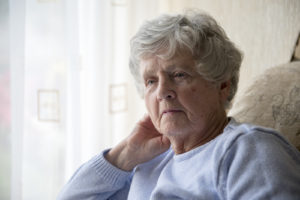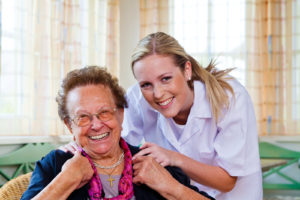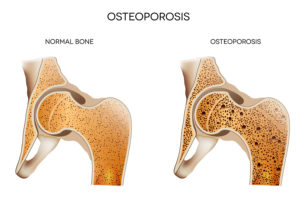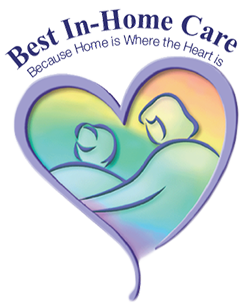Monthly Archives: August 2019
When families can all come together and agree on an elder care plan for your loved one, it definitely makes for a much smoother process and an easier transition for everyone.
Unfortunately, that isn’t always the case with bigger families, siblings that live far apart, or with families that have underlying tension for various reasons.
Here are 5 ways that you can try and bridge the gap to bring your family together with your senior’s important elder care plan and comfort as the number one goal.

1. Call a family meeting. Pick a neutral place, like a coffee shop or a restaurant where you can casually come together to talk about your parent or grandparent’s needs. If some family mem-bers aren’t able to meet or live far away, consider using technology to help such as Skype or Face Time. Set some boundaries ahead of time and try and encourage everyone to use calm voices. Be sure that everyone get a chance to talk and feels heard.
2. Try to look at the bigger picture. Your parent’s safety, comfort, and health is the most important thing when considering an elder care plan. Be sure your emotions aren’t driving all of your decisions and that the decisions being proposed are solely for the benefit of your loved one and what is best for them overall.
3. Compromise. If heads are butting and no one wants to budge on what they want, see if there’s a compromise every can agree on. If your sister thinks your Mom should be in a nursing facility but your brother wants 24 hour home elder care, what can you do to ease the worries of both parties so that you can come to a decision that will work for everyone, especially your parent?
4. Get a second opinion. Occasionally, if things can’t seem to be worked out alone, it may be time to call in a third party for a second opinion. Sometimes having a neutral person listen to all parties and offer their own take on the situation can be just what some people need to be able to agree on a solution. Is there a family friend you trust, or a community member familiar with elder care that you think would listen and offer a supportive voice? Ask if they mind helping you reach the solution that is best for your family.
5. Call a time out. If things get tough, call a time out and come back to it when emotions are settled. Dealing with a parent newly needing elder care can be overwhelming and sometimes it’s best to take a break when things get heavy. Siblings and family members often mean well and usually have their loved one’s best interest at heart, but when multiple people come together in times of upheaval, emotions can sometimes get the better of people.
Try and think about the welfare and health of your senior parent first and foremost. Put yourself in their shoes and encourage your siblings and family members to do the same. Elder care in the home can be a wonderful experience for everyone in the family, and with a little work upfront, you can experience that too!
If you or an aging loved-one are considering Elder Care in Tahoka, TX, please contact the caring staff at Best In-Home Care (806) 412-0723.
Monthly Archives: August 2019
Mental illness isn’t always talked about. When it’s an older adult facing one of the common forms of mental illness, it can be difficult to bring the situation into the open. There’s a stigma many feel that it’s not something to discuss.
If your parent suffers from one of the two most common mental illnesses in older adults, don’t stay silent. Talk about it. Get the help your parent needs. Once that’s being discussed, look at how senior care can help them manage their illness.
#1 – Anxiety

Anxiety disorders are very common in older adults. Approximately 8 percent of the population of men and women over the age of 65 have some form of anxiety disorder.
There are several types of anxiety disorders. Generalized anxiety disorder, obsessive-compulsive disorder, and post-traumatic stress disorder, and social anxiety are common. People may go to the doctor after experiencing a panic attack, but after being told there’s nothing wrong or it’s just stress, those people are less likely to seek medical care when they’re having repeat occurrences.
Symptoms of a panic attack can mimic a heart attack. Sweating, chest pain, numbness in the feet and hands, difficulty breathing, and dizziness are all typical symptoms.
When anxiety is diagnosed, therapy sessions may help. It can also help to have someone around for emotional support. Just having someone to talk to in the stressful moments helps immensely. Medication reminders and transportation also help.
#2 – Depression
Depression is the most common mental health issue older adults face. It may appear in conjunction with the diagnosis of a chronic health condition or following a spouse or significant other’s death. Statistics show that seniors who are depressed are more likely to go to the doctor or need services in a hospital’s emergency room.
The State of Mental Health and Aging in America’s report says 8 out of 10 cases of depression in older adults can be treated. It’s important to take your parent to a doctor for a diagnosis and ask about therapeutic measures and prescription medications that help ease depression. Companionship and medication reminders can be essential senior care services for someone who is depressed.
Senior care is more than help with housework and meals. So many services can help your parent better manage their health issues and enjoy living independently. All it takes is a helping hand. Call a senior care agency to learn more.
If you or an aging loved-one are considering Senior Care in Shallowater, TX, please contact the caring staff at Best In-Home Care (806) 412-0723.
Sources:
https://www.cdc.gov/aging/pdf/mental_health.pdf
Monthly Archives: August 2019
If you’re having trouble asking for help when you need it, you’re not alone. This is common among caregivers, but it’s something you can learn to do.
Get Clear about Where You Need the Most Help

The first step is to really understand where you need the most help. Sometimes as a caregiver you can get so bogged down in all that you have to do that you really don’t know what needs to happen next. You’re just running from one task to another. Take a few minutes and make a list. It will help.
Consider Family and Friends Who Could Help
Next you need to take a moment and consider who among your family and friends would be able and willing to help. Don’t worry yet about what you’ll ask them to do. This step is just about figuring out who you can ask for help. You might feel as if you can’t ask anyone for help, but that’s less accurate than you think. Write down anyone who has asked how they can help you.
Take a Deep Breath and Ask
This part is the hard part. Pick a task and pick a person. Then ask that person if they can do that task. There are so many reasons this is difficult, ranging from not wanting to be an inadequate caregiver to worrying that no one will help. Try to put all of that aside for now and know that just asking is a big step.
Let Go of Your Expectations
Once you ask for help and before you get an answer, try to let go of your expectations about the answer you’ll get. When you’re expecting one answer or another, you might miss some important details. For instance, your family member might tell you they can’t help with that task, or they can’t help this weekend. Those are important details. If the answer you get is a flat out no, that’s good to know because you can move on.
Hire Extra Help
You might not realize it, but there are other ways to get help. Hiring elder care providers can give you far more assistance than friends or family might be able to offer. They won’t argue with you and they’ve got the experience in dealing with the very situations you’re wrestling with daily.
One of the biggest lessons that you might learn as a caregiver is when you need to ask for help. It’s not always an easy lesson to learn, but it’s important.
Excerpt: Some caregivers find it really difficult to ask for help.
If you or an aging loved-one are considering a Caregiver in Wolfforth, TX, please contact the caring staff at Best In-Home Care (806) 412-0723.
Monthly Archives: August 2019
Osteopenia is a warning sign that your aging relative is on their way to developing full-blown osteoporosis. It is a condition characterized bones that are weaker than normal, but not to the point that the senior has osteoporosis. Understanding osteopenia can help family caregivers to prevent further bone health deterioration.
Osteopenia Basics

Most people reach their peak bone density when they are around the age of 30. Osteopenia usually happens after age 50. It happens when new bone tissue doesn’t form as quickly as old tissue is lost.
Doctors measure bone density using a bone density scan. The results are reported as a T score. People with osteoporosis have a T score that is higher than -2.5 but lower than -1.0. When the T score reaches -2.5 or lower, the senior is diagnosed with osteoporosis.
Some people are genetically predisposed to getting osteopenia because of a family history of it. Women also get the condition more often than men do. The reason for this is that women tend to have a lower bone mass than men do to begin with. They also typically have a longer lifespan than men do.
Causes of Osteopenia
Osteopenia can be caused by medical conditions, lifestyle changes, or a combination of both. Some medical conditions and treatments that can lead to osteopenia are:
• Celiac disease that is not treated.
• Hyperthyroidism. Using too much thyroid medication may also contribute to the problem.
• Chemotherapy and radiation.
• Some medications, such as steroids and anti-seizure medications.
Some lifestyle choices that increase the risk for osteopenia are:
• Not getting enough calcium or vitamin D.
• Lack of exercise.
• Smoking.
• Drinking excess alcohol.
• Carbonated beverages.
Preventing Osteoporosis
Even if your aging relative already has osteopenia, it may still be possible to keep it from progressing into osteoporosis. Experts recommend taking the following steps:
• Increase Calcium Intake: Good sources of calcium include dairy products, spinach, broccoli, dried beans, and salmon.
• Increase Vitamin D: Vitamin D is necessary for the body to absorb calcium. Seniors can get vitamin D from eggs, oily fish, and foods that have been fortified with vitamin D.
• Exercise: Weight bearing exercises can slow bone loss.
Elderly care providers can assist seniors to prevent osteoporosis. An elderly care provider can prepare meals and snacks that contain foods rich in calcium and vitamin D. An elderly care provider can even take the older adult shopping to purchase food. In addition, an elderly care provider can assist the older adult to engage in weight bearing exercises by driving them to the gym or watching over them while they exercise at home.
If you or an aging loved-one are considering Elderly Care Slaton, TX, please contact the caring staff at Best In-Home Care (806) 412-0723.
Sources
https://www.verywellhealth.com/osteopenia-what-you-need-to-know-190172
https://www.webmd.com/osteoporosis/guide/osteopenia-early-signs-of-bone-loss#1
https://www.healthline.com/health/osteopenia

